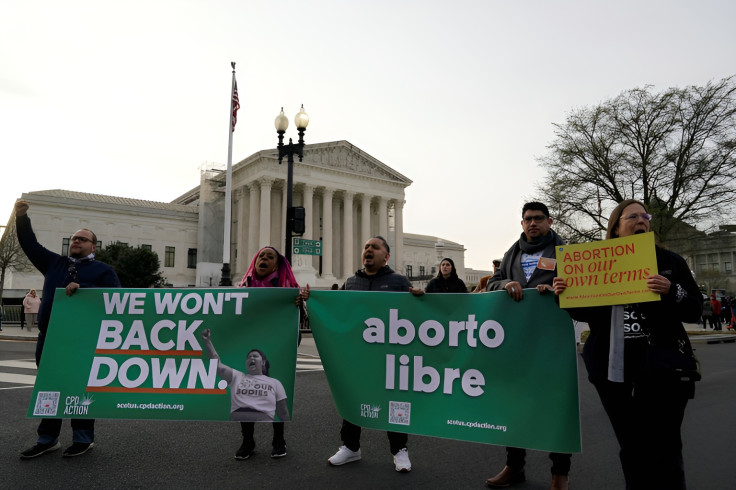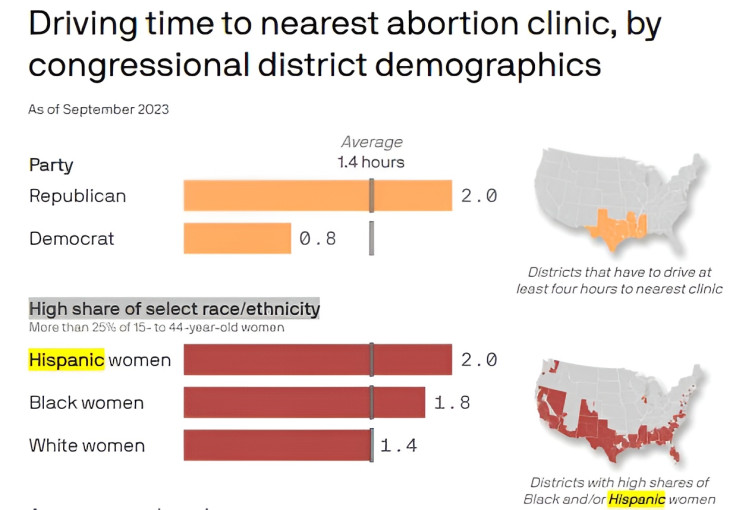
Latinas are the demographic that need to drive the farthest to get an abortion in the United States, according to a report by the Center for American Progress.
Districts with high shares of Hispanic women —defined as areas where those groups constitute more than 25 percent of all reproductive-age women— had an average driving time of two hours to get to an abortion clinic in states without restrictive bans, the study showed.
This was one hour longer than states with lower shares of Latinas, as highlighted by the study, which analyzed information based on Myers Abortion Facility Database and Census Bureau data.
The findings regarding Latinas are consistent with previous research showing the disproportionate impact the overturning of Roe v. Wade has had on this group. An analysis by the Institute of Labor Economics released in November 202 showed that Latinas' birth rates in states with abortion bans had increased two times higher than the average in those same regions.

An extended trip to receive abortion care could result in lost wages, compounded by expenses for gas, lodging, and child care, particularly since a majority of abortion patients are already parents.
Women who decide to travel to other states to obtain an abortion often face significant economic challenges. In fact, the study shows that women traveling more than eight hours round trip for an abortion "earn thousands of dollars less per year than women who have shorter driving times."
Now, thousands of additional women will be now facing even longer journeys due to the recent implementation of some of the nation's strictest abortion bans in states previously considered 'safer havens for reproductive rights.'
Florida's State Supreme Court recently approved a 6-week ban, set to take effect on May 1, (although it could potentially be overturned in a November referendum). Meanwhile, Arizona's high court upheld a near-total abortion ban.
Abortion has taken center stage in the 2024 Elections, with the issue serving as a flagship of President Joe Biden's campaign and a handful of states directly asking voters in November if they want to enshrine abortion access in the state constitution.
In the wake of the Supreme Court's 2022 decision to delegate abortion policy to individual states, most Democrat-dominated states have moved to enact laws or issue executive orders designed to protect access to abortion. Conversely, Republican-controlled states have taken a different stance, implementing new abortion restrictions.
The study found that districts represented by Republicans have, on average, twice the driving time compared to districts represented by Democrats, as reported by the Center for American Progress.
© 2025 Latin Times. All rights reserved. Do not reproduce without permission.




